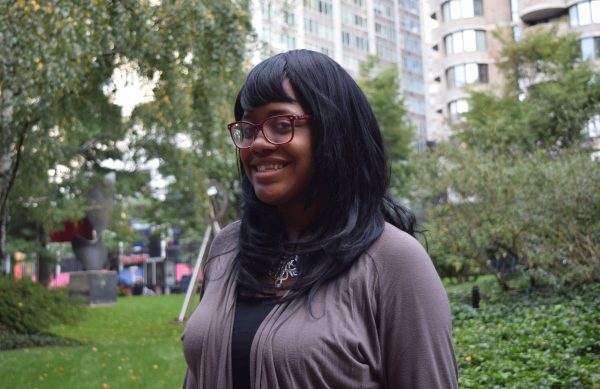Lincoln Center’s Peer Health Exchange Prepares for First Year
October 10, 2018
According to the U.S. Department of Health and Human Services, only 12 percent of the 77 million adults in the U.S. had a proficient health education. To combat this insufficient education in public high schools, the Peer Health Exchange (PHE) strives to create equity in education and health. In turn, it empowers students with the knowledge and resources needed to make healthy decisions.
PHE began at Yale University, and now has chapters in major universities across the United States. Volunteers attend weekly meetings to review materials, workbooks, lesson plans and powerpoints provided by the program. Half of the meeting is dedicated to learning about a particular skill or topic, such as mental health, while the other half is comprised of teaching demonstrations and simulations about what the volunteers reviewed. Later in the week, volunteers report in pairs to their assigned public high school classroom to teach their students about sexual, mental, emotional and physical health.
This is the first year that Fordham Lincoln Center (FLC) will have its own PHE chapter, which thrills Lincoln Center’s PHE Coordinator Chevasia Hawkins, Fordham College at Lincoln Center (FCLC) ’18. “I love PHE because of our mission,” Hawkins said. “I believe that health education is extremely important to all people especially young people. We are doing important work and I am so happy and honored to be part of that.”
Enrolled in Fordham University’s five-year graduate education program, Hawkins needed teaching experience to earn her degree, so she decided to join the PHE program during her sophomore year. At the time, however, the program was only available at the Rose Hill campus, so Hawkins and four other Lincoln Center students commuted biweekly to the Bronx. Between travel time, teaching and training, each trip took about three hours.
When Hawkins was promoted to leadership council member, she advocated to reorganize the structure of Fordham University’s PHE. As a result, last year Lincoln Center volunteers were allowed to host their weekly meetings at the Lincoln Center campus; however, they were still expected to teach at Bronx public high schools. But due in large part to Hawkins’ perseverance, this year Lincoln Center will have its own chapter and work with Manhattan public high schools — one of which is right down the street from FLC at the High School for Law, Advocacy and Community Justice.
Since PHE is a national organization and not a Fordham University club, Fordham’s chapter has not faced any direct backlash from administration. In fact, Hawkins is thankful for the program’s partnership with the Center for Community Engaged Learning, which has helped PHE reserve rooms for meetings and trainings.
Instead, Fordham University’s PHE has suffered from having to navigate around Fordham’s traditional education and policies in order to avoid being reprimanded. Hawkins recalls hearing a story that, a number of years ago, the Rose Hill chapter wanted to make the PHE a greater part of the Fordham University community. Unsurprisingly, their efforts fell through since PHE’s mission directly contradicts Fordham University’s abstinence-only sex education.
Generally, PHE chapters use provocative tactics that relate to the Exchange’s mission to recruit volunteers and increase organization awareness, such as handing out condoms with the PHE logo and raffling off vibrators. Unlike New York University’s and Columbia University’s, Fordham’s policies prevent Lincoln Center’s chapter from hosting such events. Not only does this put Lincoln Center’s chapter at a disadvantage during recruitment, but Hawkins feels as though it unintentionally isolates volunteers from other chapters who bond over these events and experience full support from the PHE organization.
Despite this, Hawkins believes Lincoln Center’s PHE chapter is on track for a successful year. Hawkins was worried that there would not be enough volunteers to establish Lincoln Center’s own program, but the team has recruited over 30 students ready to serve their community.
Deirdre Cuff, FCLC ’21, hopes that this growth continues as students see the impact PHE has on its community. “People come to PHE for all different reasons but they all leave with the same feeling of accomplishment,” Cuff said. “Being a part of getting students involved in something they care about makes me care about it more. I think we all bounce our excitement off of each other and the more people that get involved, the more the excitement grows.”
Hawkins is looking forward to the upcoming year. “This is truly a dream come true and it’s a lot of work but I am filled with joy that there is finally a Peer Health Exchange chapter at Lincoln Center,” she said. “I am also very thankful for everyone that helped establish the PHE Lincoln Center chapter: the members of last year’s Lincoln Center Workshop Group, the current leadership team of our chapter and of course everybody that has joined. Everybody who made this possible is amazing I am really looking forward to a wonderful year and I am so happy.”










